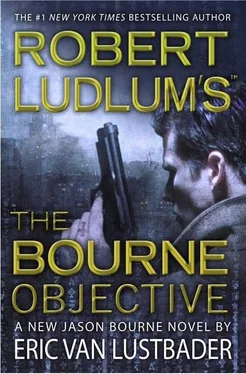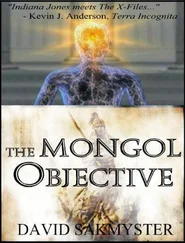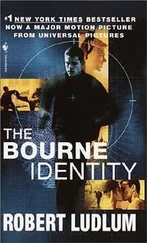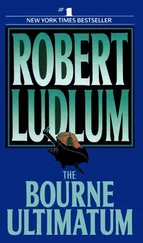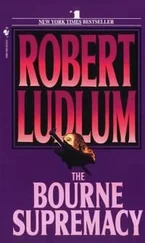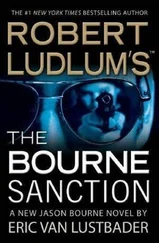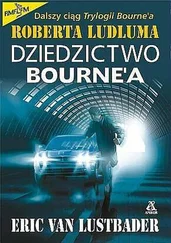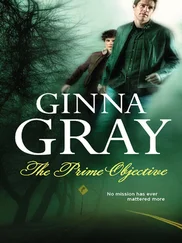At length, the young man stopped in front of a door on the left, knocked once, then opened the door inward.
“Mr. Frederick Willard,” the young man announced in a curiously formal manner as he stepped across the threshold.
Following him, Willard found himself not in an office but in a library, and a surprisingly large one, at that. Bookshelves lined three of the walls from floor to ceiling. The fourth wall was an immense picture window that looked out on a small but beautifully landscaped cloister garden with a central fountain in the Moorish style. It looked like something out of the sixteenth century.
In front of this window was a large refectory table of a thick, dark hardwood, polished to a high gloss. Seven high-backed wooden chairs were arranged at regular intervals around the table. In one sat a man with rounded shoulders, thick hair pushed back from his wide forehead in silver wings, and skin the color of honey. A large, very thick book was open in front of him, which he was studying with great concentration. Then he looked up, and Willard was confronted by a pair of piercing blue eyes, a large, hawk-like nose, and a hard smile.
“Come in, Mr. Willard,” he said, that hard smile fixed in place. “We’ve been expecting you.”
They use pleasure craft-very expensive yachts,” Contreras said.
“To go up and down the coast,” Soraya said.
“That’s the safest way to transport goods up from central Mexico, where they’re received from the Colombian cartels.”
The desert sky was huge, so chock-full of stars that in certain places the night seemed hazed an icy blue. The barest crescent of a moon hung low in the sky, giving off precious little illumination. Contreras checked the dial of his watch; it seemed he had the schedule of the patrolling migras down to a science.
They were crouched in the deep shadow thrown by a clump of sagebrush and a giant saguaro cactus. When they spoke it was in the barest of whispers. She followed the pollero ’s lead so that, like his, her voice sounded no different than the dry desert wind.
“Your man is into drugs, count on it,” Contreras said. “Why else does a man like him want to sneak into Mexico?”
It was colder here than she had expected, and she shivered a little.
“Unless someone was meeting him, he would have gone straight to Nogales, stolen a car, and then headed due west to the coast.”
Soraya was about to reply when he put a forefinger to his lips. She listened, and a moment later she heard what had alerted him: the soft crunch of boot soles across the ground not far from them. When a spotlight was switched on Contreras didn’t even twitch, which meant he had been expecting it. The light swung in an arc, not at the area where they were hidden, but ahead of them, where the invisible border stretched, desolate and windblown. She heard a grunt, then the light was switched off and the sound of the boot soles faded away.
She was about to shift position when Contreras grabbed her and held her still. Even in the starry darkness she could feel his eyes glaring at her. She held her breath. A moment later the beam of blinding light re-ignited, sweeping a larger portion of the desert ahead. Then three shots exploded into the night, sending up tiny dust devils where the bullets impacted the earth.
She heard a brief gurgle, which might have been a laugh. The light was extinguished. Then all was stillness again, and the lonesome soughing of the wind reasserted itself.
Now we go, Contreras mouthed to her.
She nodded, following him on cramped legs as they skirted the clump of sagebrush and, circling to the right, dashed across the flat ground from the United States into Mexico. There was nothing at all to mark their transition from one country to another.
In the distance she heard the howl of a coyote, but couldn’t tell from what side of the border it came. A jackrabbit, springing out of their way, startled her. She found that her heart was racing, and there was an odd sort of singing in her ears, as if her blood were rushing too quickly through her veins and arteries.
Contreras led her forward at a steady pace, never stopping, never at a loss for direction. His confidence was absolute, and she felt secure within the circumference of it. It was an odd and slightly unsettling feeling, one that made her think of Amun, of Cairo, and of their time in the Egyptian desert. Could it have been just weeks ago? It seemed like such a long time since she’d seen him, and their text messages were becoming fewer and shorter as time went on.
The night was now starless, as profoundly dark as the bottom of the ocean, as if even hours from now there would be no dawn, no sun rising in the distant eastern sky. A sudden crack of thunder came to her, but it sounded far away, streaking through the sky of another country.
They walked for a long time, through a flat, monotonous landscape that seemed scarcely alive. At last, Soraya saw the glow of lights, and shortly thereafter Contreras led her into Nogales, Sonora.
“This is as far as I go,” the pollero said. He was looking not toward the lights, but out into the blackness of the eastern outskirts of town.
Soraya handed him the balance of his fee, and he pocketed it without counting it.
“The Ochoa has clean rooms, and the management doesn’t ask questions.” Then he spat casually between his dusty cowboy boots. “I hope you find what you’re looking for,” he said.
She nodded, watching him head east toward an unknown destination. When the night had swallowed him up, she turned and walked until the dust turned to packed earth and then to streets and sidewalks. She found the Ochoa without difficulty. There was some kind of all-night festival going on. The central square was lit up; at one end a mariachi band played something fast and cacophonous, at the other booths were set up selling freshly made tacos and quesadillas. In between, crowds drifted or danced or staggered, drunk, yelling friendly curses at the musicians or anyone who would listen. Here and there a fight broke out, blood chants rose up. A horse whinnied and, snorting, stamped its hooves.
The lobby of the Ochoa was all but deserted. The night clerk, a small man with a wiry body and the face of a prairie dog, was watching a Mexican telenovela on a small portable TV with bad reception. He sat rapt in his airless cubicle, seeming not to notice. He scarcely glanced at Soraya, handing her a key when she paid the one-night price of the room, posted on a rate card above his head. He did not ask for her passport or any other form of identification. She could have been a mass murderer for all he cared.
Her room was on the second floor and, since she’d asked for quiet, in the back. There was, however, no air-conditioning. She opened the window wide and looked out. The room overlooked a dingy alleyway and a blank brick wall, the rear of another building, possibly a restaurant, judging by the long row of garbage cans lined up on one side of a doorway, closed off by only a screen door. A bare fluorescent bulb threw a sickly blue light over the garbage cans. The shadows were as purple as bruises. As she watched, a man in a heavily stained apron pushed open the screen and sat on one of the garbage can lids. He rolled a joint, stuck it in his mouth, and lit up. As he drew in the smoke, his eyes closed. She heard some noises. At one end of the alley a couple was having sex up against the wall. The cook, lost in his pot-induced reverie, ignored them. Maybe he didn’t even hear them.
She turned away from the window and checked out the room. As Contreras had told her, it was clean and neat, even the bathroom, thank God. Disrobing, she turned on the shower, waited for the water to turn hot, then stepped in, luxuriating in the heat, the grime and sweat sluicing off her. Slowly, her muscles lost their tension and she began to relax. All at once a wave of tiredness swept over her and she realized that she was exhausted. Stepping out of the shower, she gave her body a vigorous toweling off. The thin, rough terry turned her skin red beneath its dusky hue.
Читать дальше
